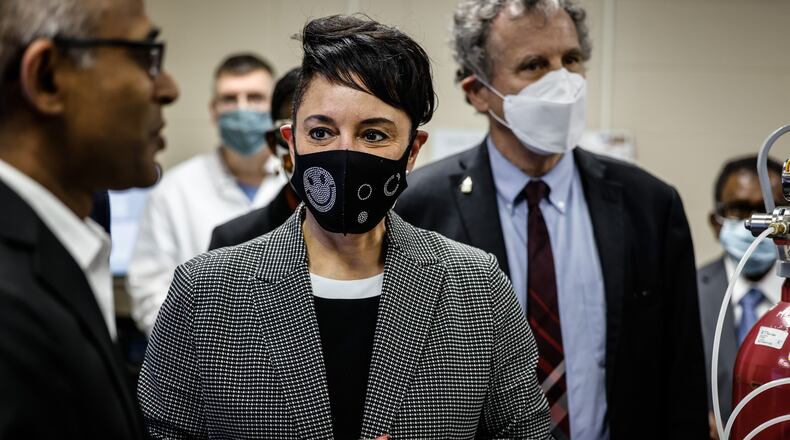U.S. Senator Sherrod Brown toured CSU’s C.J. McLin Water Reclamation Facility Thursday with Bronaugh and met with CSU’s agriculture students.
Brown said he was particularly impressed with research Central State is doing on water reclamation. More than 600,000 pipes are contaminated by lead in Ohio, Brown said.
“Think about this,” he said. “One of the central problems in Dayton, Ohio and in Appalachian Ohio, is the number of babies and children exposed to lead in paint, soil and water pipes.”
It’s a problem that the Senate is working to fix, he said, but additional research would help with the water quality.
It’s also important to have young people working on these problems, Bronaugh said. She said she was impressed with the students she met.
“These young people are our future for keeping us alive and well into future generations,” Bronaugh said. “And if we invest in them, they’re going to make sure that this world is taken care of.
Brown said he will keep institutions like Central State in mind as he begins work on the next Farm Bill, which is passed every five years and impacts how and what is grown in the U.S.
Bronaugh said it is important to serve institutions like CSU, which can help reach rural and underserved communities.
“So for me being here as a representative of the USDA, I want to ensure that Central State gets the resources you need and that the state of Ohio and its communities get the resources that we provided,” Bronaugh said.
She also called on the state to provide more funding for the research done at CSU.
Central State, one of the only two historically Black Colleges and Universities in Ohio, was denied 1890 land grant funding for more than 100 years, which meant the institution was also denied funding from the USDA for agricultural research, Brown’s office said. Central State became a land grant institution in 2014.
Bronaugh said agriculture research like that done at CSU keeps the nation’s food safe, ensures there is enough food to go around and works on issues like climate change.
About the Author

